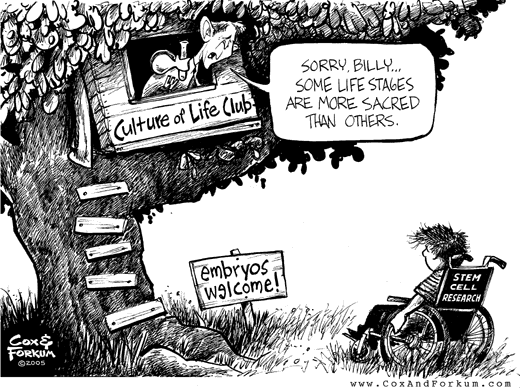I would really like to take this "human rights" idea one step farther. One commenter, healthy lungs, brought up a great point. What does "human rights" mean? In this context, I am referring to not only the basic human right to live but also the right to choose life or death and the right to speak up. An embryo or a fetus still has the basic human rights, according to
Bush, and so it is wrong to abort or destroy and embryo without consent from the "person" with the rights which of course is impossible to get.
However, there is a hole in this idea since there are laws against suicide. If
Bush wants to argue that everyone including and embryo has the basic human right to choose life or death then why could an embryo choose but not a living person?
Why are there laws against suicide and assisted suicide if a person has basic human rights to a choice? I realize that it is a stretch relating embryonic stem cell research to suicide, but if a human life is a human life that why is it different whether the life is born or unborn when they make the decision to live or die? What do you think? Do the morals stay the say?
